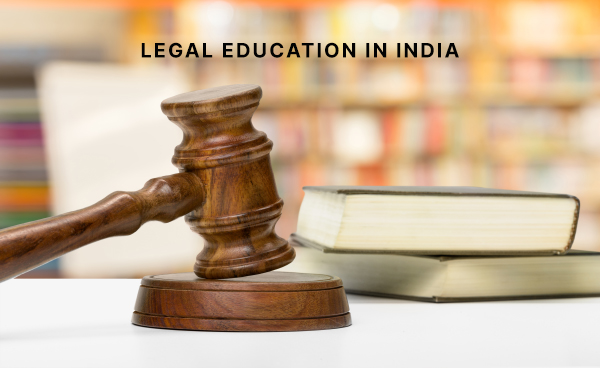The Future of Legal Education in India: Trends and Innovations
Legal education in India is undergoing a transformative evolution driven by technological advancements, changing societal dynamics, and emerging global trends. As the legal profession adapts to the complexities of the 21st century, legal education must evolve to equip law students with the knowledge, skills, and competencies needed to thrive in a rapidly changing legal landscape. In this blog, we will explore the future of legal education in India, examine key trends and innovations shaping the legal education ecosystem, and discuss the imperative of preparing law students for the challenges and opportunities of the future.
The Future of Legal Education in India
Blended Learning and Technology Integration:
Blended learning models, incorporating online and offline teaching modalities, are becoming increasingly prevalent in legal education in India. The integration of technology platforms, learning management systems, and virtual classrooms enables law schools to deliver interactive, engaging, and personalized learning experiences to students. Online lectures, webinars, virtual moot courts, and simulation exercises enhance student engagement, facilitate collaborative learning, and promote active participation in legal education.
Interdisciplinary Approach and Specialized Programs:
The future of legal education in India lies in embracing an interdisciplinary approach that integrates law with other disciplines such as technology, business, public policy, and social sciences. Specialized programs in emerging areas of law such as cybersecurity law, intellectual property rights, environmental law, and artificial intelligence law are gaining traction, catering to the diverse interests and career aspirations of law students. Interdisciplinary collaboration, experiential learning, and real-world application of legal principles prepare students for dynamic and multifaceted roles in the legal profession.
Experiential Learning and Clinical Legal Education:
Experiential learning methodologies, including clinical legal education, internships, and externships, are essential components of legal education in India, providing students with hands-on experience, practical skills, and exposure to real-world legal practice. Clinical legal education programs offer students opportunities to work on actual cases, interact with clients, draft legal documents, and represent clients in court under the supervision of faculty mentors and legal practitioners. Experiential learning fosters critical thinking, problem-solving, and professional development, preparing students for the complexities and challenges of legal practice.
Ethical and Professional Development:
The future of legal education in India emphasizes the importance of ethical and professional development, instilling values of integrity, ethics, and professionalism in law students. Ethics courses, professional responsibility seminars, and experiential learning modules on legal ethics and professional conduct equip students with the ethical framework and moral compass needed to navigate ethical dilemmas and uphold the highest standards of integrity and professionalism in their legal careers. Developing ethical leaders and responsible practitioners is essential for maintaining public trust and confidence in the legal profession.
Globalization and Internationalization:
Globalization and internationalization are reshaping legal education in India, creating opportunities for collaboration, exchange, and cross-cultural learning. Internationalization initiatives such as student exchange programs, faculty collaborations, joint degree programs, and research partnerships with foreign universities expose law students to diverse legal systems, comparative law perspectives, and global best practices. International exposure enhances students’ global competencies, intercultural communication skills, and understanding of transnational legal issues, preparing them for careers in an increasingly interconnected and globalized world.
Lifelong Learning and Continuing Legal Education:
The future of legal education extends beyond the classroom to embrace lifelong learning and continuing legal education (CLE) as integral components of professional development and career advancement. Continuing legal education programs, workshops, seminars, and webinars provide practicing lawyers, judges, and legal professionals with opportunities to update their knowledge, acquire new skills, and stay abreast of legal developments, emerging trends, and cutting-edge practices in their respective fields. Lifelong learning fosters continuous professional growth, enhances competencies, and ensures relevance and adaptability in a dynamic and evolving legal landscape.
Engage with Dhiti Law Firm:
The future of legal education in India is characterized by innovation, transformation, and adaptability in response to the evolving needs and challenges of the legal profession. Blended learning models, interdisciplinary approaches, experiential learning methodologies, and ethical and professional development initiatives are reshaping legal pedagogy and preparing law students for the complexities and opportunities of the 21st-century legal landscape. Embracing technology, globalization, and lifelong learning as integral components of legal education is essential for fostering a culture of innovation, excellence, and inclusivity in legal education in India. As a leading law firm committed to promoting excellence in legal education and professional development, Dhiti Law Firm is dedicated to supporting initiatives that advance the future of legal education in India and empower the next generation of legal professionals to thrive in a rapidly changing world. Contact us today to learn more about our commitment to legal education and how we can collaborate to shape the future of the legal profession in India and beyond.


